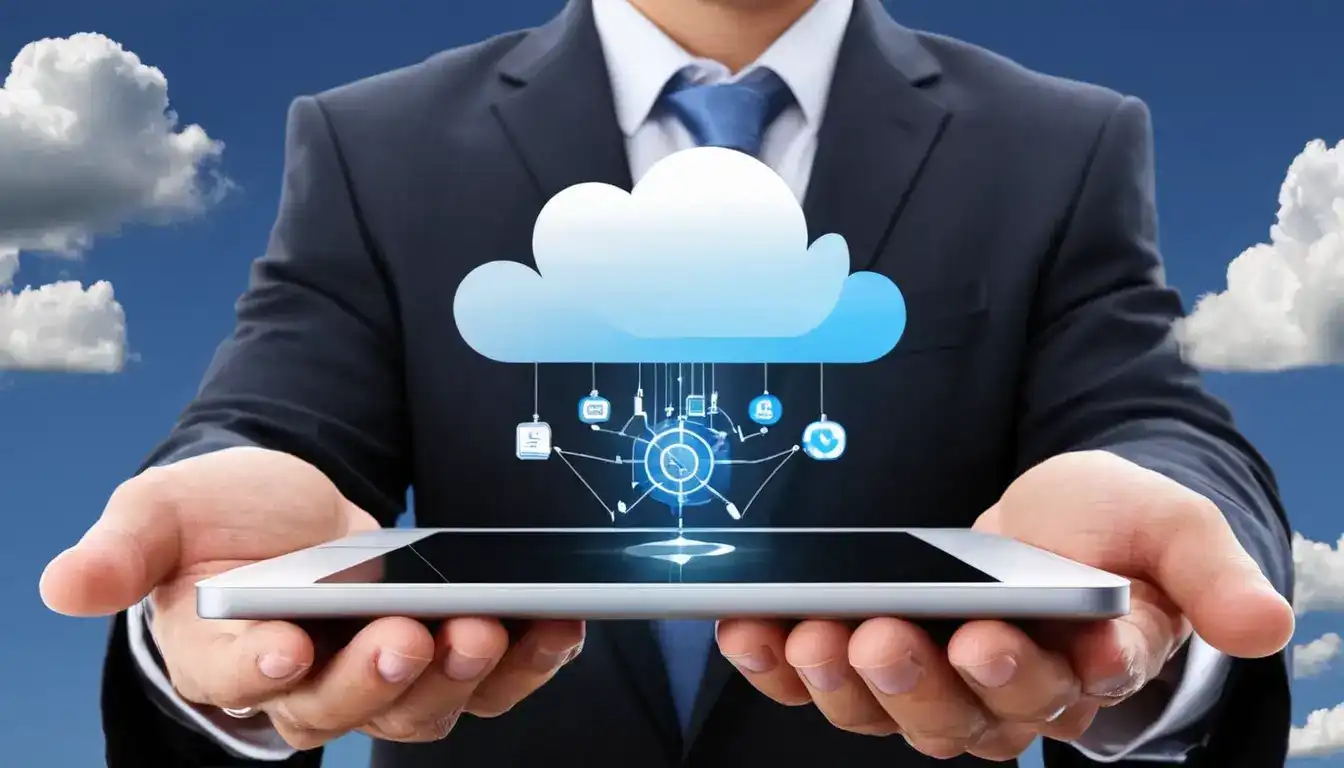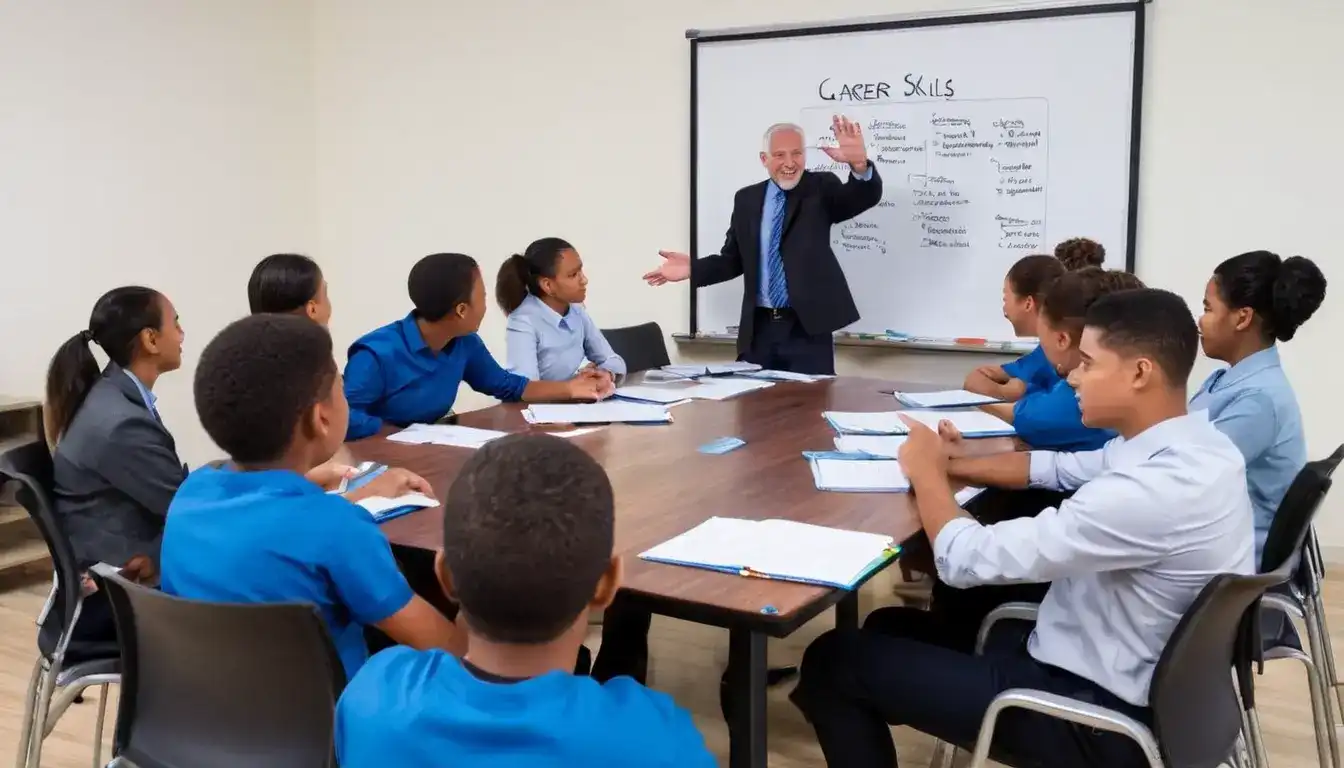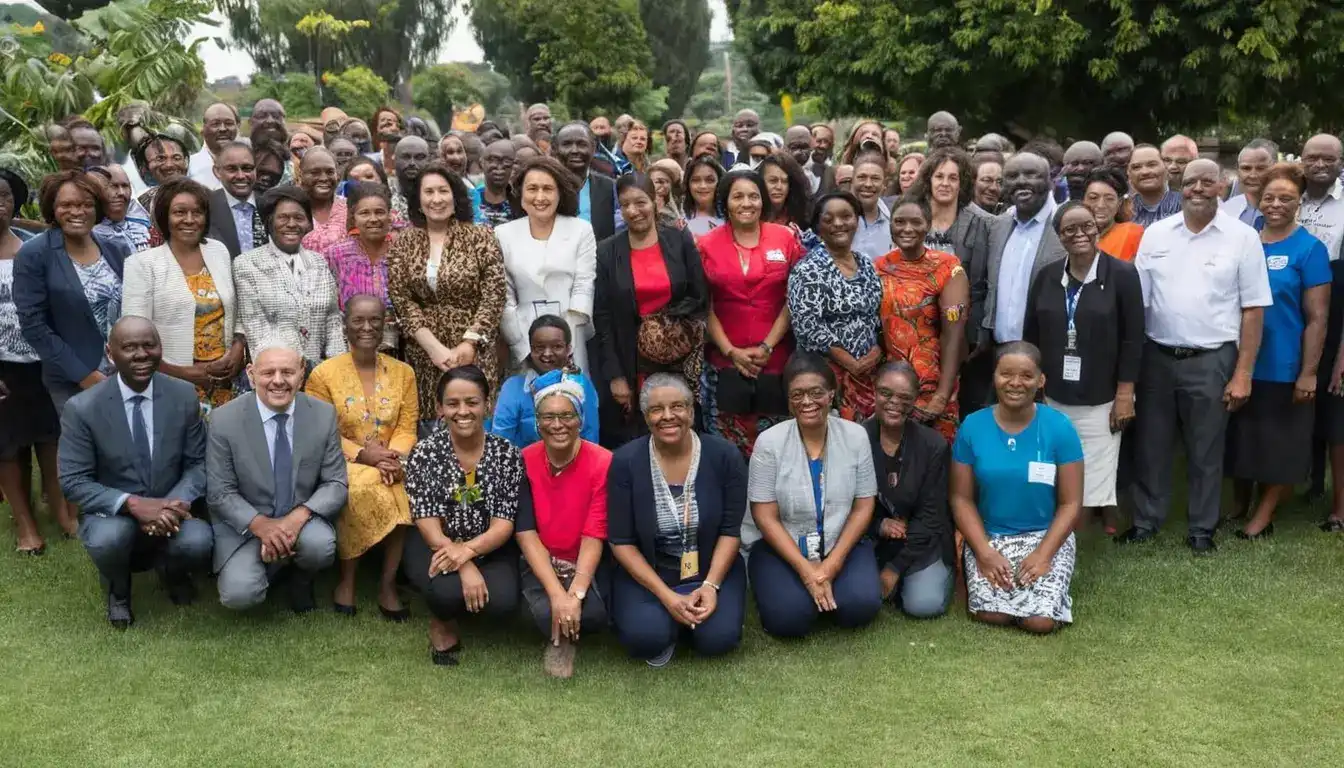Tips to Improve Your Work Productivity
Emily Willis

Photo: Tips to Improve Your Work Productivity
In today's fast-paced and demanding work environment, maximizing productivity is essential for success. While the idea of boosting productivity may seem daunting, it is achievable through a combination of strategic techniques, improved habits, and a mindful approach to your work.
Whether you're struggling to manage your time effectively, battling distractions, or seeking new ways to stay motivated, this comprehensive guide will provide you with actionable tips to enhance your focus, efficiency, and overall productivity. It's time to reclaim control over your workload and unlock your true potential.
Outline:
- Understanding the Importance of Productivity
- Identify Your Productivity Style
- Create a Productive Workspace
- Master the Art of Time Management
- Overcoming Distractions for Better Focus
- Enhancing Motivation and Energy Levels
- Effective Task Management Strategies
- Collaborating and Delegating Tasks
- Utilizing Technology for Productivity
- Maintaining Work-Life Balance
Understanding the Importance of Productivity
Before delving into strategies to enhance productivity, it's crucial to recognize why this topic warrants our attention. Improved productivity directly translates to increased efficiency, enabling you to accomplish more in less time. This, in turn, can lead to better performance, higher income potential, and a more favorable reputation in your field.
Additionally, heightened productivity contributes to reduced stress levels, improved time management skills, and a heightened sense of satisfaction with your work. Ultimately, enhancing your productivity empowers you to achieve a healthier and more fulfilling work-life balance.
Identify Your Productivity Style
The first step toward improving your productivity is understanding your unique working style. Everyone has different approaches to tasks, deadlines, and responsibilities. Recognizing your natural tendencies will help you develop strategies that align with your strengths and address your weaknesses.
The Planner
Planners thrive on structure and organization. They excel at creating schedules, setting goals, and sticking to timelines. To enhance productivity, planners should lean into their organizational skills by creating detailed plans and breaking down large tasks into manageable steps.
The Prioritizer
Prioritizers have a keen ability to identify the most critical tasks and focus their energy on those. They are adept at quickly assessing the importance of different responsibilities and are willing to delegate or postpone less urgent matters. To boost productivity, prioritizers should focus on refining their time management skills and ensuring they don't take on too many commitments.
The Multitasker
Multitaskers feel most productive when handling multiple tasks simultaneously. They enjoy variety in their work and are skilled at juggling different responsibilities. To optimize productivity, multitaskers should set up systems to manage their various commitments effectively, ensuring that no task falls through the cracks.
The Deep Worker
Deep workers prefer to focus intensely on one task at a time. They excel at concentrating for extended periods and tend to produce high-quality work. To enhance productivity, deep workers should create an environment conducive to focused work, minimizing distractions and carving out uninterrupted blocks of time for important tasks.
Create a Productive Workspace
Your physical environment plays a significant role in influencing your productivity. A well-designed workspace can boost your motivation, enhance focus, and improve your overall efficiency. Here's how you can set up your workspace for maximum productivity:
- Ergonomics: Ensure your desk and chair are set up ergonomically to provide comfort and prevent physical strain. A comfortable working posture will help you stay focused and avoid distractions caused by discomfort.
- Lighting: Natural light is ideal for improving alertness and reducing eye strain. Position your desk near a window to benefit from daylight, and use task lighting to avoid glare and create a pleasant working atmosphere.
- Minimize Clutter: A cluttered desk can lead to a cluttered mind. Keep your workspace organized and tidy to promote a sense of calm and enhance your ability to focus.
- Personalize: Incorporate elements that inspire and motivate you. Whether it's a vision board, motivational quotes, or artwork, surrounding yourself with inspiring visuals can boost your productivity.
- Greenery: Introduce plants or flowers into your workspace. Research has shown that greenery can improve air quality, enhance mood, and increase productivity.
Master the Art of Time Management
Effective time management is critical to improving productivity. By allocating your time efficiently, you can accomplish more in less time, reducing stress and improving the quality of your work. Here are some strategies to become a master of time management:
- Set Clear Goals: Define specific and achievable goals for each day, week, and month. Clear goals provide direction and help you prioritize your tasks effectively.
- Create a Schedule: Plan your day by blocking out time for specific tasks. Consider your energy levels and schedule more complex tasks during your peak hours.
- Prioritize: Identify the most important and urgent tasks, ensuring they receive the majority of your time and attention. Use techniques like the Eisenhower Matrix (categorizing tasks by importance and urgency) to prioritize effectively.
- Break Tasks into Manageable Chunks: Large or complex tasks can be overwhelming, leading to procrastination. Break them down into smaller, achievable steps to make them more manageable and less daunting.
- Set Time Limits: Allocate a specific timeframe for each task to prevent them from consuming more time than necessary. This helps improve focus and prevents tasks from expanding to fill available time.
Overcoming Distractions for Better Focus
Distractions are the nemesis of productivity. Emails, social media, chatty colleagues, or noisy environments can quickly derail your focus and disrupt your workflow. To enhance productivity, it's essential to identify and address these distractions:
- Identify Distraction Triggers: Start by recognizing the specific triggers that pull you away from your work. Is it social media notifications, interruptions from colleagues, or something else? Understanding these triggers is the first step toward minimizing their impact.
- Eliminate Digital Distractions: Turn off notifications for emails and social media during designated work periods. Use website-blocking apps like Freedom or Cold Turkey to prevent access to distracting sites during focus periods.
- Establish Boundaries: Communicate your need for uninterrupted work time to colleagues. Politely request that they respect your focus time, and suggest alternative times for non-urgent discussions.
- Create a 'Do Not Disturb' Signal: Use a visual signal, like headphones or a specific sign, to indicate that you should not be disturbed. This simple cue will help minimize interruptions and signal your need for focused work time.
- Find Your Focus Environment: Experiment with different workspaces to find your optimal focus environment. Some may prefer a quiet library or a private office, while others thrive in bustling cafes or co-working spaces.
Enhancing Motivation and Energy Levels
Motivation is the fuel that drives productivity. When you feel motivated, tasks become easier, and you're more likely to persevere through challenges. Here are some tips to boost your motivation and sustain your energy levels throughout the workday:
- Set Meaningful Goals: Intrinsic motivation is a powerful driver. Set goals that align with your passions and values, ensuring your work has personal significance. This will make tasks feel more rewarding and energizing.
- Break the Monotony: Monotony can sap your motivation. Mix up your routine, take on new challenges, and seek opportunities for variety in your work to keep things interesting and engaging.
- Celebrate Small Wins: Recognize and celebrate your accomplishments, no matter how small. Acknowledging progress boosts motivation and creates a sense of momentum.
- Practice Self-Care: Take care of your physical and mental well-being. Eat nutritious meals, stay hydrated, and prioritize adequate sleep. Regular exercise and stress management techniques like meditation or deep breathing can also enhance motivation and energy levels.
- Incorporate Breaks: Short, regular breaks improve focus and prevent mental fatigue. Step away from your work for a few minutes, stretch, or take a short walk to recharge and refocus.
Effective Task Management Strategies
The way you manage your tasks can significantly impact your productivity. Implementing effective task management strategies will help you stay organized, meet deadlines, and ensure that no detail goes unnoticed.
- Use a Task Management System: Choose a task management tool that suits your working style. This could be a paper to-do list, a digital task manager like Asana or Trello, or a simple spreadsheet. The key is to find a system that helps you track tasks, set deadlines, and stay organized.
- Batch Similar Tasks: Group similar tasks together to improve efficiency. For example, schedule dedicated time for returning emails or making phone calls. This minimizes the mental effort required to switch between different types of tasks.
- Implement the 'Eat That Frog' Technique: Inspired by a quote from Mark Twain, this technique involves tackling your most challenging or unpleasant task first. By 'eating the frog' early in the day, you'll feel a sense of accomplishment and momentum that carries through the rest of your tasks.
- Use Checklists: Checklists ensure that nothing is overlooked, especially for complex or multi-step tasks. They help you stay organized, provide a sense of progress, and reduce the mental burden of remembering every detail.
- Delegate and Outsource: Recognize that you don't have to do everything yourself. Delegate tasks to colleagues or consider outsourcing certain responsibilities to free up your time for more critical or specialized work.
Collaborating and Delegating Tasks
Effective collaboration and delegation are essential aspects of productive work. By involving your colleagues and delegating tasks appropriately, you can leverage the strengths of your team, foster a sense of unity, and free up your time for tasksthat require your unique skills and expertise. Here's how you can enhance your collaboration and delegation skills:
- Clear Communication: Effective collaboration starts with clear and open communication. Ensure everyone understands the shared goal, their individual responsibilities, and the expected outcomes.
- Foster a Culture of Trust: Trust is the foundation of successful collaboration. Encourage transparency, respect differences, and create a safe space for sharing ideas and providing feedback.
- Active Listening: Pay attention to the ideas and concerns of your colleagues. Active listening helps build rapport, fosters a sense of inclusion, and ensures that valuable insights are not overlooked.
- Leverage Technology: Utilize collaboration tools like project management software, video conferencing platforms, or shared document editors to facilitate efficient and effective teamwork.
- Recognize Strengths: Understand the strengths and expertise of your team members. Delegate tasks based on these strengths to leverage the full potential of your team and promote a sense of ownership.
Utilizing Technology for Productivity
Technology can be a powerful tool to enhance your productivity. The right apps, software, and digital tools can streamline your workflows, automate repetitive tasks, and help you stay organized.
- Task Management Apps: As mentioned earlier, task management apps like Asana, Trello, or Todoist can help you stay organized and on top of your responsibilities.
- Project Management Software: Tools like Basecamp, monday.com, or Jira enable efficient collaboration and provide a centralized platform for managing projects, tasks, and deadlines.
- Communication and Collaboration Tools: Slack, Microsoft Teams, or Google Chat facilitate seamless communication and file sharing, ensuring everyone stays connected and informed.
- Password Managers: Apps like 1Password or LastPass securely store your passwords, enabling quick and secure access to your accounts and devices.
- Automation Tools: Zapier or IFTTT (If This Then That) allow you to automate tasks between different apps, saving time and effort.
- Email Management: Gmail or Outlook offer robust email management features, including filters, labels, and templates, helping you efficiently manage your inbox.
Maintaining Work-Life Balance
Maximizing productivity doesn't mean sacrificing your personal life. Achieving a healthy work-life balance is essential for your well-being, motivation, and long-term productivity. Here's how you can strike the right balance:
- Set Boundaries: Establish clear boundaries between work and personal time. Avoid overworking by setting specific work hours and sticking to them. Communicate these boundaries to your colleagues and clients.
- Prioritize Self-Care: Make time for activities that nourish your mind and body. Engage in hobbies, exercise regularly, and practice relaxation techniques to manage stress effectively.
- Unplug Regularly: Take breaks from technology to recharge and refocus. Schedule digital detoxes or set aside dedicated time each week to disconnect and recharge.
- Plan Personal Time: Treat personal commitments with the same importance as work commitments. Schedule leisure activities, vacations, and quality time with family and friends.
- Practice Saying 'No': Learn to say 'no' to unnecessary commitments or requests that infringe on your personal time. This allows you to protect your time and energy for the things that truly matter to you.
Conclusion
Enhancing your work productivity is a journey of self-discovery and continuous improvement. By understanding your unique working style, creating an optimal environment, and implementing effective time management strategies, you can significantly boost your productivity.
Remember, productivity is not just about doing more; it's about doing the right things, efficiently and effectively. By embracing the tips outlined in this guide, you can take control of your workload, improve your focus, and ultimately, achieve a healthier and more fulfilling work-life balance.
So, start small, experiment with different techniques, and find the approaches that work best for you. With dedication and a mindful approach, you'll be well on your way to becoming a highly productive professional, capable of achieving your goals and making a meaningful impact in your field.
Latest ✨
View AllArtificial Intelligence (AI) has evolved rapidly from science fiction to reality, offering immense potential but also presenting significant ethical challenges.
Emily Willis
Virtual reality (VR) and augmented reality (AR) are transforming the entertainment industry by offering immersive experiences that blur the lines between the real and virtual worlds. VR completely transports users into computer-generated environments, while AR overlays digital elements onto the real world.
Emily Willis
In today's job market, academic qualifications alone are not enough for success. Employers value soft skills such as communication, leadership, and teamwork. Educational settings provide opportunities for students to develop these skills. Strong communication skills enable effective collaboration and understanding. Presentation and public speaking skills enhance professionalism and credibility. Leadership skills involve setting goals, making decisions, and inspiring others. Teamwork skills are important for building relationships and achieving shared goals. Developing these skills in an educational environment prepares individuals for successful careers by enhancing employability and job readiness. Soft skills development is an ongoing process that promotes continuous learning and growth. By emphasizing the importance of soft skills, educational institutions empower students to succeed in a complex and interconnected world.
Emily Willis
fostering a love of reading in early childhood and provides practical tips to achieve this. It emphasizes starting early, making reading fun and interactive, integrating reading into daily activities, and addressing challenges with reluctant readers.
Emily Willis
Business
View All
August 5, 2024
The Importance of Having Insurance to Protect Yourself and Your Assetsinsurance in protecting individuals and businesses from financial losses due to unforeseen events. It explains the different types of insurance available, such as health, life, auto, homeowners, renters, disability, and liability insurance, and their benefits.
Emily Willis

August 5, 2024
How to Create Engaging Content and Convert Visitors to Customerscreating engaging content to attract and retain customers in the digital age. It provides strategies for understanding the audience, setting content goals, creating high-quality content, using storytelling and emotional connection, and optimizing content for conversions. It also covers content formats and distribution, measuring and analyzing content performance, and building relationships with influencers and user-generated content.
Emily Willis

August 4, 2024
How to Build a Strong Brand Identity for Your BusinessBuilding a strong brand identity is essential for business success as it helps differentiate you in the market, connect with your audience, and build loyalty. Key steps include understanding your target audience, defining your mission and values, developing a unique selling proposition, creating a memorable brand name and logo, choosing brand colors and typography, crafting a brand voice and messaging, ensuring a consistent brand experience, leveraging visual content.
Emily Willis
Economy
View Allchallenges and opportunities presented by economic uncertainty and explores strategies that governments and businesses can implement to mitigate risks, ensure stability, and pave the way for future success.
Read MoreGlobal inequality refers to the unequal distribution of wealth, income, and opportunities across the world, leading to economic, social, gender, and regional disparities. The consequences of this inequality are widespread, impacting social unrest, political instability, economic stagnation, and environmental degradation.
Read MoreDiscover the hidden connections that drive global stock markets. Explore stock correlations, their impact on diversification and risk, and how to calculate them. Learn how to apply this knowledge to your investment strategy and uncover secrets to making more informed decisions.
Read MoreEntertainment
View All
August 5, 2024
Music Universal Language: Connecting and Inspiring Across CulturesMusic has the power to transcend language barriers and connect people on a deep emotional level. It serves as a bridge between cultures, fostering understanding and appreciation for diversity. The universality of rhythm and melody creates a sense of unity, while the diversity of musical styles allows for exploration and creativity.
Emily Willis

August 4, 2024
Virtual Music Concerts: The Future of Live Performance?The music industry has seen significant changes in recent years, with virtual music concerts becoming a popular trend, especially due to the impact of the COVID-19 pandemic. Technological advancements have made virtual concerts more accessible and cost-effective, while also reducing the environmental impact of live events. However, challenges such as technical issues and the lack of physical presence remain. The future of virtual concerts may involve hybrid models that combine virtual and physical experiences, as well as continued technological innovation to enhance the quality of virtual performances. Building a sense of community and engagement will also be crucial for the success of virtual concerts moving forward.
Emily Willis

August 4, 2024
The Latest Music Trends, Artists Influencing Pop Culture, and How Digital Platforms Facilitate the Distribution of Music GloballyThe music industry is constantly changing due to consumer preferences, technology, and the influence of artists. Digital platforms have revolutionized music creation, distribution, and consumption, leading to genre fusion, the rise of independent artists, and collaborative projects. Influential artists like Billie Eilish, BTS, and Taylor Swift have shaped pop culture globally. Streaming services, social media, and direct-to-fan engagement have transformed music distribution. Digital platforms also promote cultural diversity and inclusivity, expand markets and revenue, and drive technological advancements. The industry is also focusing on sustainability and ethical practices. To succeed in the future, stakeholders must embrace digital transformation and champion inclusivity.
Emily Willis
Health
View AllA healthy lifestyle is crucial for enhancing overall quality of life in today's fast-paced world. It involves habits such as a nutritious diet, regular exercise, adequate sleep, stress management, and avoiding harmful substances. Benefits include improved physical health, enhanced mental well-being, increased energy levels, better sleep quality, and longevity. Implementing healthy habits gradually, staying consistent, seeking support, and monitoring progress are key steps towards a healthier lifestyle. Prioritizing a healthy lifestyle is not just about adding years to life but about adding life to years, leading to a more fulfilling and vibrant life.
Emily Willis
cultivating healthy lifestyle habits to improve overall well-being. It focuses on three pillars of well-being: nutrition, exercise, and sleep. It provides tips on how to incorporate these practices into daily routines, such as eating a variety of foods, finding enjoyable forms of exercise, and establishing a consistent sleep schedule.
Emily Willis
Heart disease is a leading cause of death globally, but early detection and prevention strategies can reduce its impact. This article discusses the importance of early detection, common risk factors, preventive measures, and lifestyle changes for heart health. Understanding heart disease, recognizing symptoms, and undergoing regular screenings are crucial. Common risk factors include high blood pressure, high cholesterol, diabetes, smoking, obesity, physical inactivity, and family history. Symptoms of heart disease include chest pain, shortness of breath, fatigue, irregular heartbeat, and swelling. Diagnostic tests and screenings include blood pressure measurement, cholesterol screening, blood glucose test, ECG, stress test, and imaging tests. Preventive measures include adopting a heart-healthy diet, regular physical activity, quitting smoking, managing stress, maintaining a healthy weight, and limiting alcohol consumption. Medications and treatment options may be necessary for individuals at high risk or diagnosed with heart disease.
Emily Willis
Trending 🔥
View All
2
3
4
5
6
7
9
10
Lifestyle
View AllSports
View AllAugust 4, 2024
The Importance of Mental Training and Psychological Strategies in Helping Athletes Reach Their Peak Performance on the Field
Read MoreAugust 5, 2024
Celebrating Sports Legends: Honoring Iconic Figures and Their Enduring Impact
Read MoreTechnology
View All
August 4, 2024
The Future of Artificial Intelligence: Opportunities and Challenges
opportunities and challenges presented by Artificial Intelligence (AI) in various sectors such as efficiency, customer experiences, healthcare, education, and economic growth. It highlights the need to address ethical considerations, job displacement, privacy issues, security risks, and regulatory challenges associated with AI.

August 4, 2024
Bridging the Digital Divide: Ensuring Everyone Has Access to Technology
we can bridge this gap and create a more inclusive digital landscape.

August 4, 2024
The Role of 5G Technology in Revolutionizing Communication
The introduction of 5G technology is set to revolutionize communication by offering faster speeds, lower latency, and increased capacity for connecting devices. This technology will impact various sectors such as healthcare, transportation, and entertainment. 5G enhances communication through faster speeds, lower latency, and increased capacity, enabling applications like remote surgery, autonomous vehicles, and high-quality streaming.

August 4, 2024
Role of Cloud Computing Technology in Modern Business
Cloud computing technology has become essential for modern businesses, offering cost efficiency, scalability, and flexibility. It enables streamlined processes, enhanced productivity, and improved collaboration among employees. Cloud computing also ensures data security, disaster recovery, and business continuity. By migrating to the cloud, businesses can streamline IT operations, enhance customer experiences, access advanced technologies, and reach a global audience. Real-world applications of cloud computing include e-commerce, healthcare, financial services, manufacturing, and education.





















